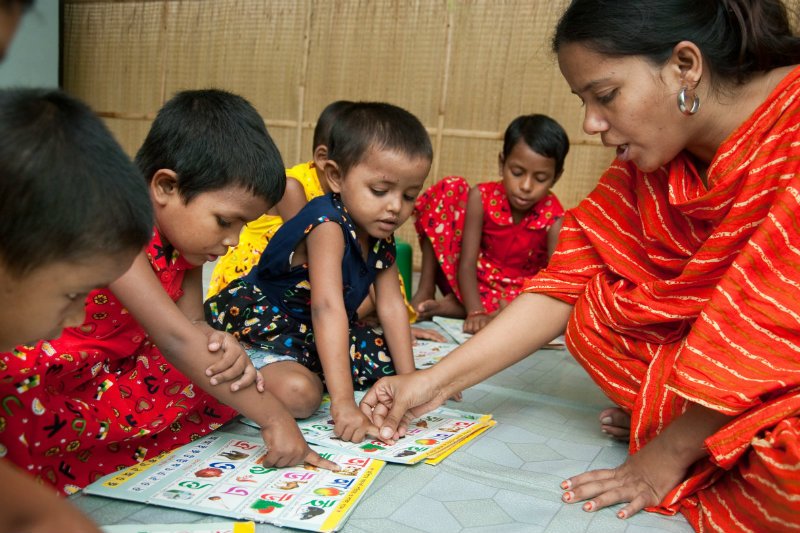This article was contributed by Kristin Myers of Concern Worldwide.
Concern Worldwide is working in Bangladesh to provide urban homeless with access to shelters, bathing facilities and vocational training — ultimately helping pavement dwellers pave their way to better lives.
Migrating for survival:
When river erosion swept away Shakila’s home in a remote village in central Bangladesh’s Sherpur district, it took all her hope with it. With her husband and their two children, she took the 123 mile journey towards Bangladesh’s capital city of Dhaka in search of shelter, hoping for recovery and a better life.
But lacking both jobs and savings, Shakila, her husband Razzak, and their two sons Shaiful, 15, and Kamal, 12, were forced to sleep in the train station, believing it to be safer than the streets and road dividers.
“There were many families like us who used to sleep under make-shift shelters made of polythene sheets,” Shakila explained.
“The railway station at Tejgaon where we got off was our first, and only, address in this city for a long, long time,” Shakila recalls.
Sadly, Shakila’s story is a familiar one to many in Bangladesh’s growing cities. In Bangladesh, migration is a survival strategy, often driven by poverty. Many rural poor move to major cities like Dhaka and Chittagong to seek jobs, but few find them. Almost a third of Dhaka’s population do not have proper housing, instead living in squatter settlements or slums, or are homeless “pavement dwellers.”
Frequently, the elements are not the only challenges faced by the vulnerable people living on the streets. Pavement dwellers often fall victim to verbal, physical, and sexual abuse, as well as to drugs and other crime.
“The railway station is a bad place for my teenage boys. Drug abuse was rampant, and I could see that my sons were being influenced by their friends,” says Shakila.
Fellow pavement dwellers at the Tejgaon station directed her to seek assistance from Concern Worldwide’s Amrao Manush program. Shakila and her family became project participants, and soon, their lives began to change.
AMRAO MANUSH
Reaching nearly 25,000 urban pavement and slum dwellers in Dhaka and Chittagong, Amrao Manush (“We Are People Too” in Bengali) project helps families like Shakila’s get off of the pavement and standing on their own two feet. The program provides 12 pavement dweller centers, which offer night shelter, education, daycare for children, as well as bathing and cooking facilities.
With assistance from the program and government stipends, Shakila’s sons Shaiful and Kamal began to attend school. Shakila and Razzak were able to take advantage of the life skills education, apprenticeships, and vocational and entrepreneurship skills training offered by Amrao Manush.
“As our businesses continued to grow and, we had a steady stream of income, I realized that it was time to take my family off the streets.”
Participants can also access a savings plan, and with her own savings plus a small grant from the project, Shakila was able to start a business selling vegetables at the Karwan Bazar market. Almost immediately, Shakila saw her monthly income increase from BDT 1,500 ($19) to more than BDT 9,000 ($115).
Inspired by her success, Shakila’s husband also used his savings to open a vegetable business, bringing in an extra BDT 8000 ($102) for the family.
“As our businesses continued to grow and we had a steady stream of income, I realized that it was time to take my family off the streets,” Shakila says. “With our combined incomes, we can now afford to rent a room in a slum by the Tejgaon rail station. It has been three months since we moved into our new place, and we have never been happier.”

Though off the streets, for now Shakila and her family will remain project participants and receive healthcare, education support, and access to the savings scheme. At last, Shakila has become hopeful for the future.
“The Amrao Manush project helped me when I had nothing to fall back on,” she says, “which is why it is so important for me to help other pavement dwellers and inspire them to never give up and keep moving forward!”
The views expressed here are not necessarily those of each of the partners of Global Citizen.